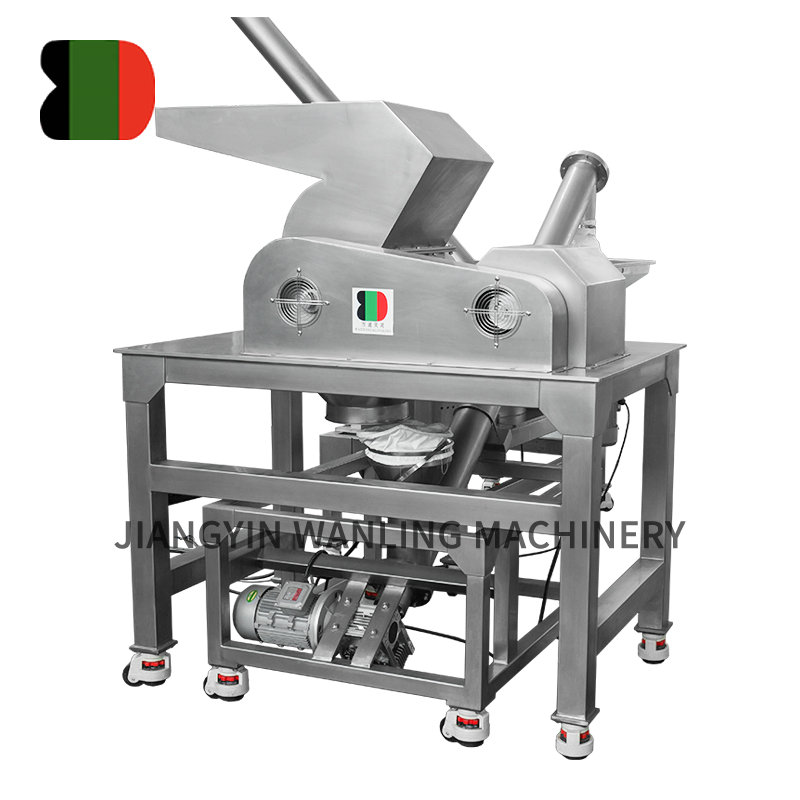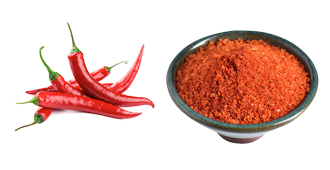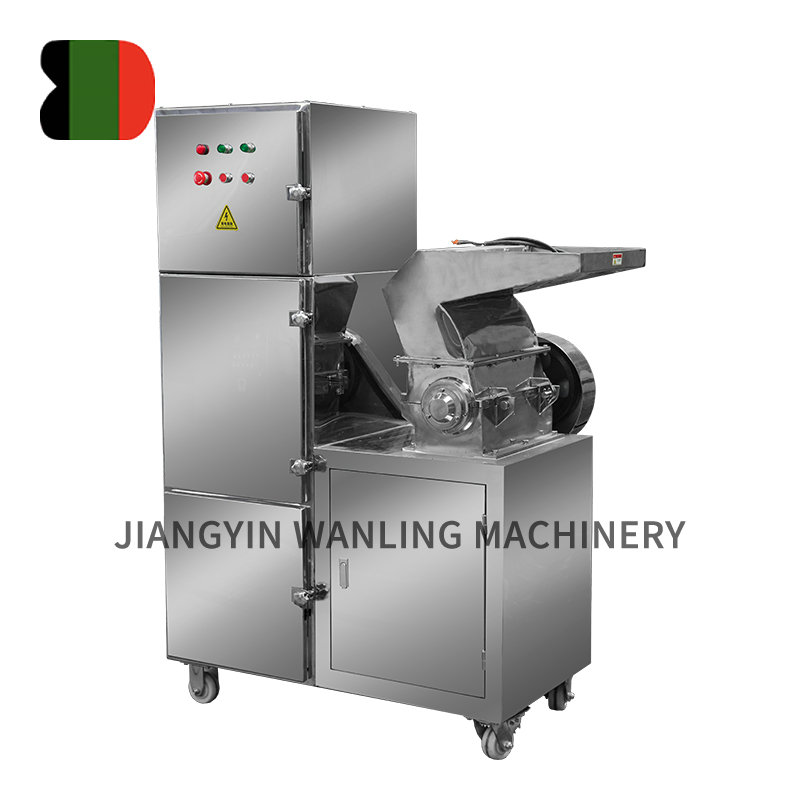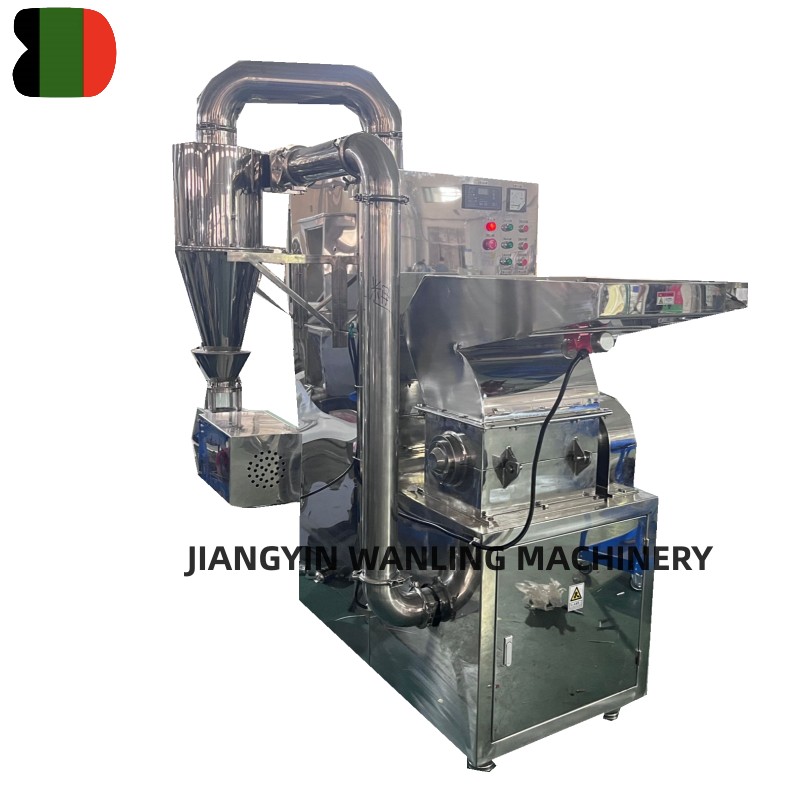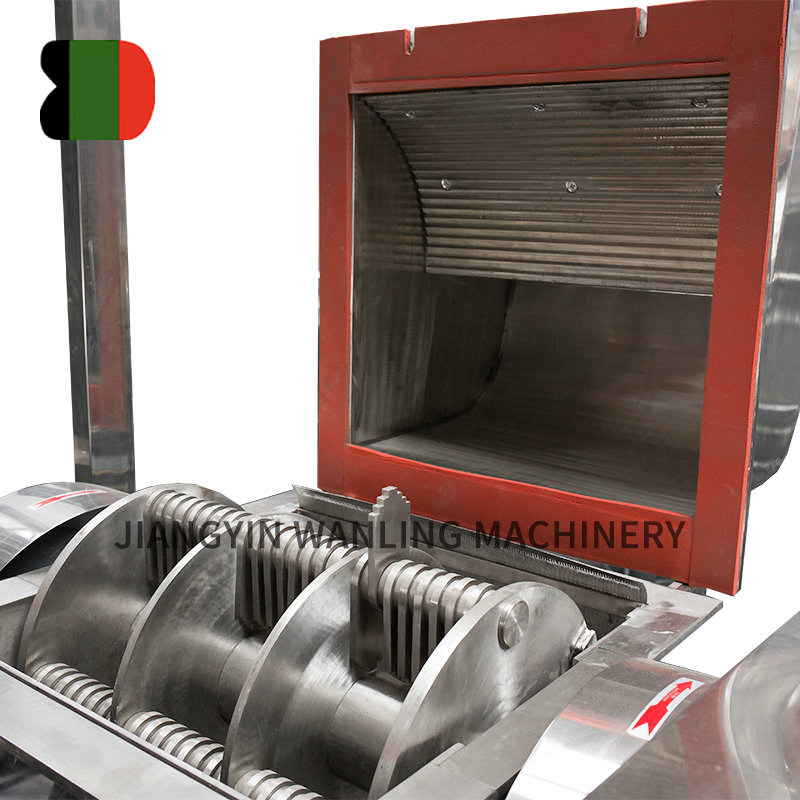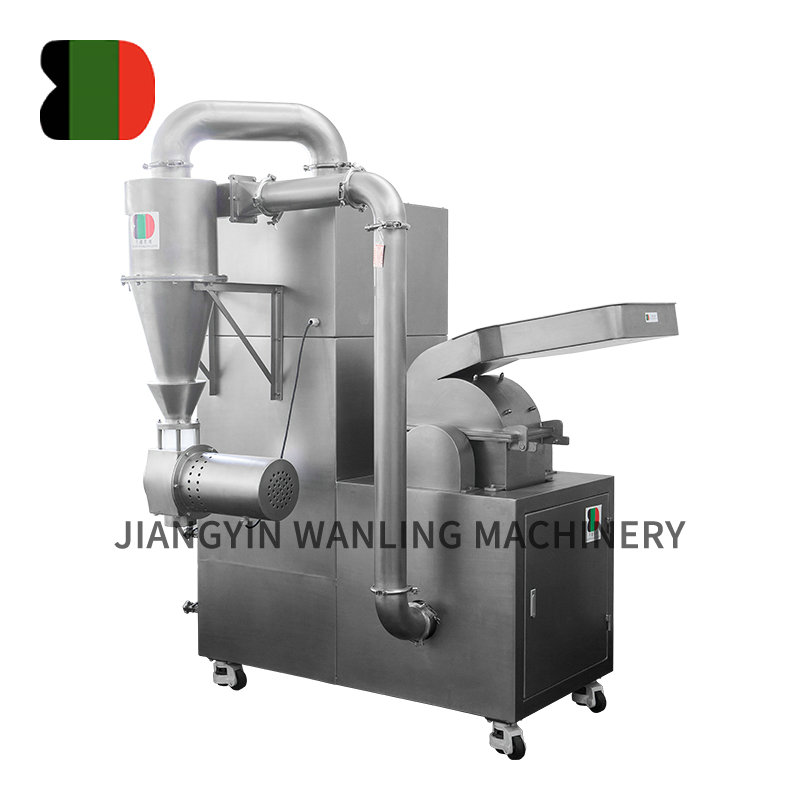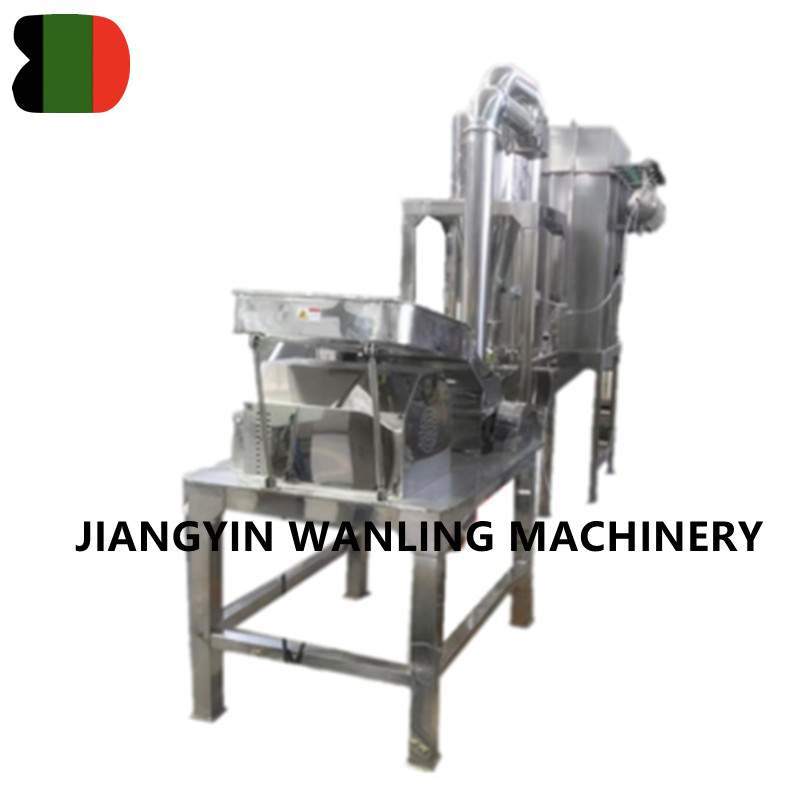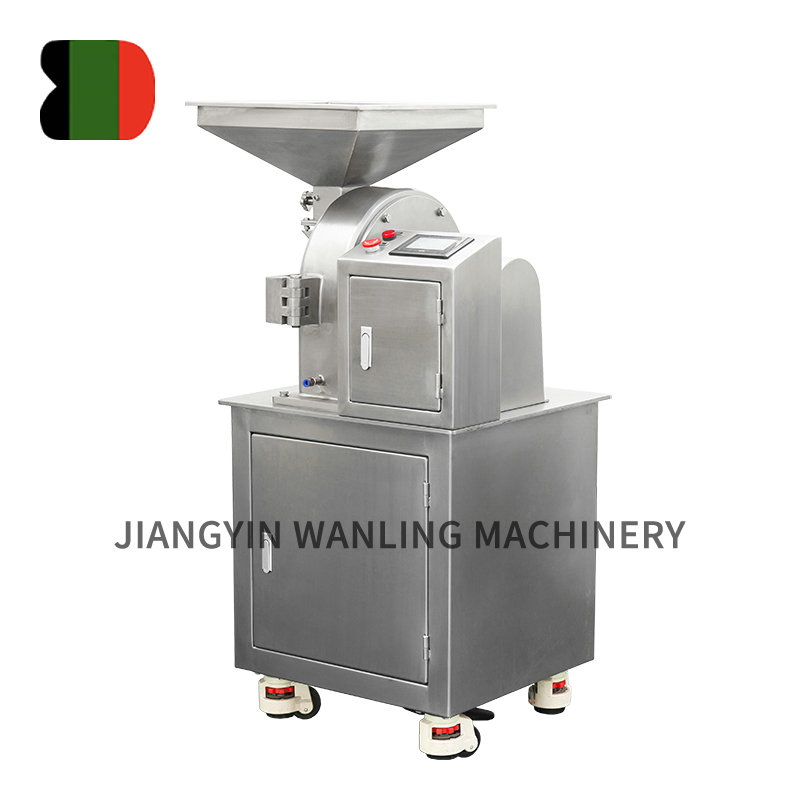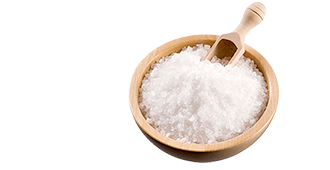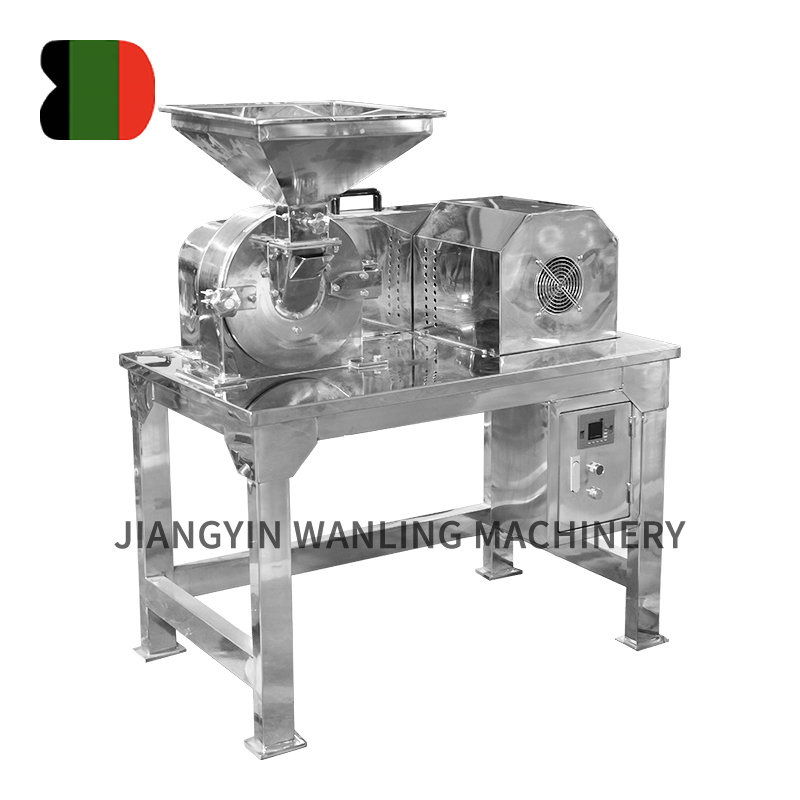The air classifier mill (ACM) offers several environmental and operational benefits compared to other traditional milling systems, such as ball mills, hammer mills, or jet mills. These advantages make it an attractive choice for a wide range of industries that require efficient and controlled particle size reduction. Below are the key environmental and operational benefits of using an air classifier mill:
Environmental Benefits:
Reduced Energy Consumption:
Air classifier mills are typically more energy-efficient than traditional milling systems. The combination of mechanical grinding and air classification allows for finer particle sizes to be achieved with less energy input. In contrast, other mills, like ball mills, require more energy to achieve similar particle sizes, particularly when handling larger volumes of material.
Air classifier mills also allow for adjustable airflow and classifier speed, which helps optimize the system to meet the specific requirements of each material, thus reducing energy waste and enhancing overall efficiency.
Minimized Material Loss and Waste:
The air classification process allows for precise control over the particle size distribution, ensuring that only desired particle sizes are produced and excess fines are minimized. This reduces material loss, ensuring a more sustainable process.
By precisely separating fine and coarse particles, air classifier mills can recycle and reuse coarser materials that would otherwise be discarded in conventional milling systems, contributing to reduced waste and improved material utilization.
Low Environmental Impact:
The use of closed-loop systems in air classifier mills helps to capture airborne particles and prevent dust emissions, which can be a significant environmental concern in other milling operations. This makes ACMs a cleaner alternative compared to open mills or grinding systems that generate substantial dust.
The low dust generation of air classifier mills also reduces the need for additional dust collection systems, further minimizing environmental impact and operational costs related to air filtration.
Ability to Handle Heat-Sensitive Materials:
Air classifier mills use airflow to remove heat generated during the milling process, helping to preserve heat-sensitive materials like pharmaceuticals, food products, and chemicals. Unlike traditional mills (e.g., hammer mills), which generate significant heat and may alter the properties of sensitive materials, ACMs ensure that the material retains its integrity without degradation due to temperature fluctuations.
This heat dissipation is particularly important in industries focused on sustainability and quality preservation of natural or organic products.
Recyclability and Reuse of Materials:
In some applications, especially in the recycling industry, air classifier mills can be used to separate fine particles from coarse materials, allowing for the efficient recycling of powders, granules, or even metal and plastic scraps. This promotes a circular economy by allowing materials to be reused and reducing the demand for raw resources.
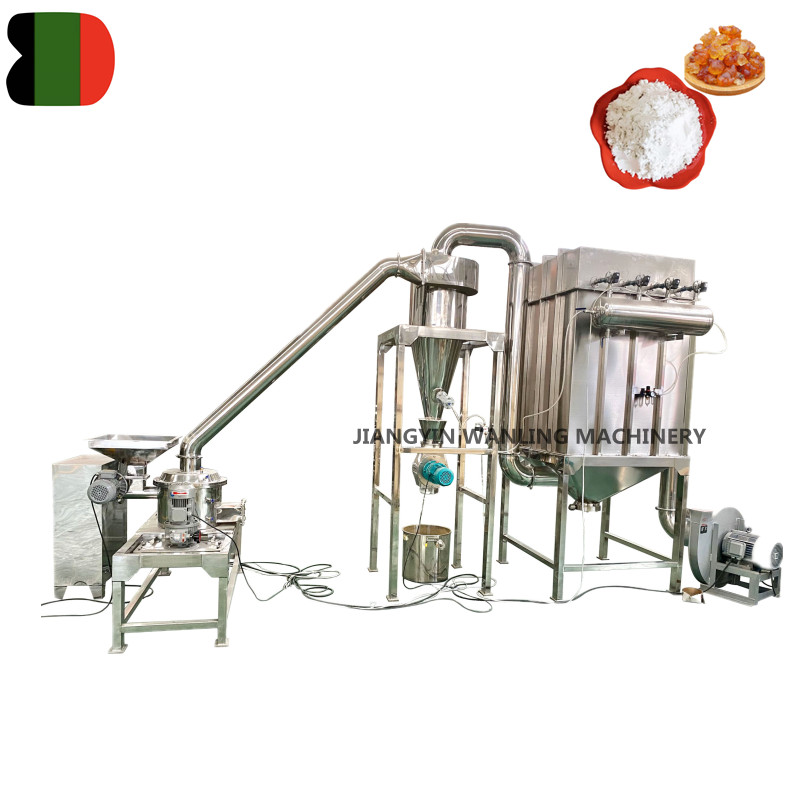
Operational Benefits:
Precise Particle Size Control:
One of the most significant operational advantages of an air classifier mill is its ability to precisely control particle size. The classifier wheel or airflow speed can be adjusted to select the exact cut-point for particle separation, allowing operators to produce a narrow particle size distribution that meets specific requirements. This is particularly important in industries like pharmaceuticals, cosmetics, and chemicals, where consistent particle size can directly affect the performance or properties of the end product.
Higher Throughput and Efficiency:
Air classifier mills provide high throughput rates without compromising product quality. By continuously grinding and classifying materials, they can handle larger volumes of material compared to traditional mills, improving the overall efficiency of the milling process.
This efficiency makes ACMs ideal for industrial-scale operations where high-volume production and consistent results are necessary.
Reduced Operational Costs:
The efficiency of the air classifier mill translates into lower operational costs. Since the system requires less energy to operate than traditional milling systems and minimizes material waste, the overall cost per unit of production is reduced.
The need for fewer consumables, such as grinding media or maintenance parts (e.g., hammers or liners in other mills), further reduces the cost of ownership over time.
Versatility and Adaptability:
Air classifier mills are highly versatile and can be used to process a wide range of materials, including pharmaceutical powders, food ingredients, chemicals, minerals, and polymers. The flexibility to adjust the grinding and classification parameters allows for the milling of both soft and hard materials, as well as materials with varying moisture content.
This adaptability allows manufacturers to process different raw materials with the same system, improving operational efficiency and minimizing the need for specialized equipment.
Closed-System Operation:
Air classifier mills often operate in a closed system, which means that the material is processed without exposure to the outside environment. This helps to minimize contamination risks and ensures a cleaner, safer operating environment.
The closed-loop system also allows for better control of airflow, pressure, and particle size, providing more precise and consistent product outputs.
Low Maintenance Requirements:
Compared to other milling systems, air classifier mills have relatively low maintenance requirements due to their fewer moving parts. This reduces the likelihood of mechanical failures and minimizes downtime, improving overall system reliability and operational uptime.
With proper calibration and regular inspection, air classifier mills can continue to operate efficiently over long periods, reducing the need for frequent repairs or part replacements.
Ability to Handle Fine and Ultra-Fine Grinding:
Air classifier mills excel in fine and ultra-fine grinding. For applications that require particles in the micron or sub-micron range, ACMs are more effective than traditional mills, such as hammer mills or ball mills, which struggle to achieve these fine particle sizes.
This ability to produce nano-sized particles or very fine powders is especially important in industries like pharmaceuticals, electronics, and nanotechnology.



 Español
Español